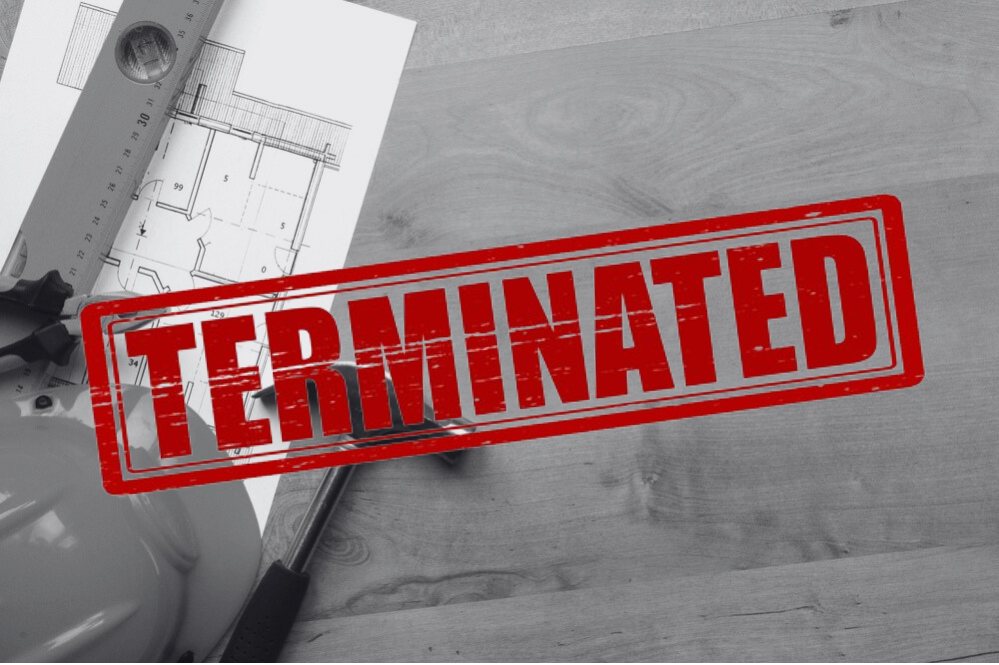

Termination happens when you are fired from a project; this is not to be confused with a default; you are in default under the terms of a contract when you fail to do something required by it.
For example, if your contract requires turning in daily reports and fail to do so, you are in default under the contract terms.
Most contracts will give you the opportunity to cure the default once you are given notice. To continue the example above, if you receive an email from the project manager stating that you have 48 hours to turn in your daily reports, that is a notice of default.
If you timely turn in the reports, you will cure the defect. Termination normally occurs after you fail to cure a defect.
Most contractors think their only liability when they are terminated is the loss of any money they are owed.
The Process of Termination
The truth is, that a termination can be far more costly, and here is why: when you sign a contract with the owner or general contractor, you are making them a promise that you will complete the scope of work for the price you agree to, the owner or general contractor has the right to rely on this promise.
When you are terminated, you have broken that promise and are now responsible for the damages. This means that when the owner or general contractor hires a replacement to complete your scope of work, if it costs them more than what you promised, you are on the hook for the difference, plus any administrative fees or penalties allowed by the contract. From my experience, these amounts are sometimes substantial.
For example, I had a roofing client who signed a contract for a large commercial roofing project in late 2019.
The project was not ready for him to begin until early 2021. The cost of materials and labor substantially increased between the time he signed the contract and the time he was supposed to start the project.
He asked the general contractor for the additional funds required to complete the work and his request was denied because he did not have a price escalation clause in the contract.
I mean, who knew COVID was coming? Because he was not denied the extra funds, he did not start the project and was terminated.
Six months later, he was sued for the $150,000 over his contract that it cost the replacement contractor to complete his scope of work.
Before Walking Away from a Project
Before you decide to “walk” on a project without completing it, you need to review the contract or have someone review it for you to see if you can do so without breaching it and being liable for the same type of damages.
If you are in default and on the verge of being terminated, serious consideration needs to be given to the potential liability.
If you are in a default or termination situation and want to talk through all your options, call us and we can help determine your best course of action.
Karalynn Cromeens is the Owner and Managing Partner of The Cromeens Law Firm, PLLC, with over 17 years of experience in construction, real estate, and business law. A published author and passionate advocate for contractors, she has dedicated her career to protecting the businesses her clients have built. Karalynn is on a mission to educate subcontractors on their legal rights, which inspired her books Quit Getting Screwed and Quit Getting Stiffed, as well as her podcast and The Subcontractor Institute.

